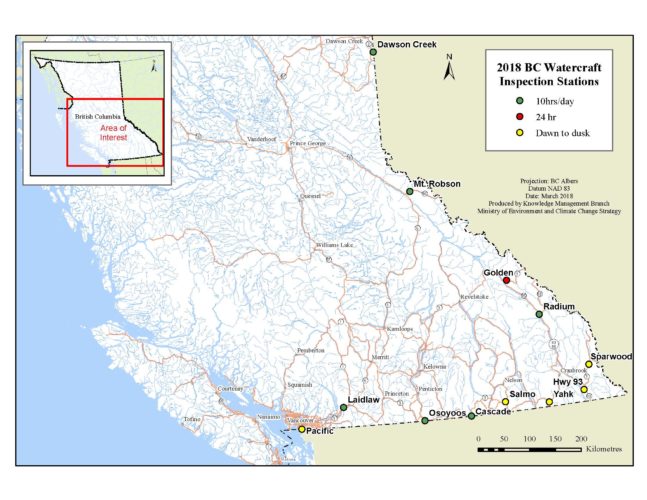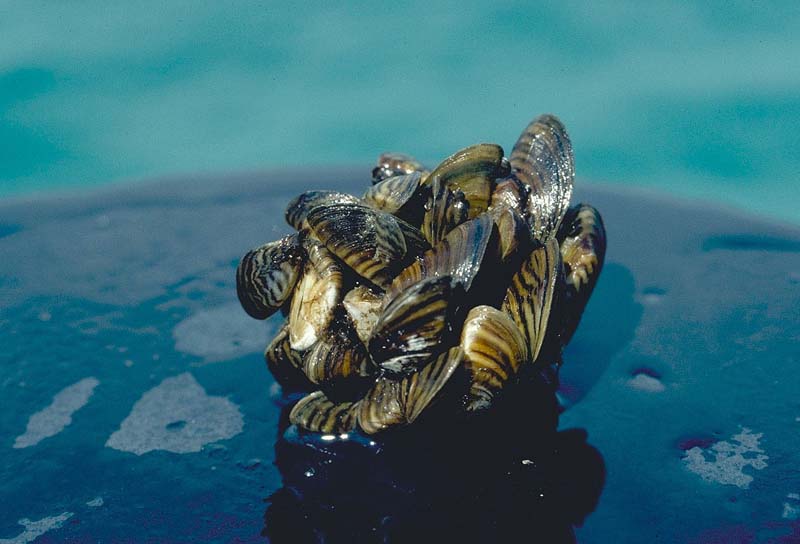The Government of British Columbia has announced dedicated annual funding for B.C.’s Invasive Mussel Defence Program to help protect the province’s waterways from the environmental, economic, and social impacts these invasive species can have.
“It’s imperative that we keep these destructive species out of our province and not allow them to threaten our vibrant B.C. waterways,” said George Heyman, Minister of Environment and Climate Change Strategy. “This is why we will be funding the Invasive Mussel Defence Program on an annual basis, to ensure that necessary and responsive resources are in place to protect our economy, our infrastructure, and our sensitive ecosystems.”
The presence of zebra and quagga mussels could harm fish populations and sensitive ecosystems, as well as impact water supplies and tourism. The defence program is designed to prevent the spread of these mussels by intercepting and inspecting watercraft travelling into or through B.C.
“The Invasive Species Council is pleased to see the ongoing investment by government in the mussel prevention program,” said Brian Heise, chair of the Invasive Species Council of B.C. “The ISCBC looks forward to working with experts, volunteers, governments, industry, regional committees, and other partners throughout B.C. to prevent the introduction of invasive mussels into our vital fresh waters.”
B.C. has 12 inspection stations at key entry points to determine whether vessels entering the province are at high risk of carrying the invasive mussels.

The B.C. Conservation Officer Service (COS) is leading enforcement operations and has 64 trained auxiliary officers. The COS also has a trained dog, Kilo, to help detect possible invasive mussels on high-risk vessels. In his first year, Kilo was on shift for over 900 inspections and detected invasive mussels on two contaminated watercraft. Kilo will be joined in the 2019 season by K9 Major, the program’s second canine officer.
The public is encouraged to report any watercraft suspected of transporting invasive mussels to the B.C. Conservation Officer Service’s Report All Poachers and Polluters (RAPP) hotline at 1 877 952-7277.
Annual funding to the Invasive Mussel Defence Program includes:
- BC Hydro – $1.25 million
- Columbia Basin Trust – $250,000
- Columbia Power – $250,000
- Fortis BC – $250,000
- Ministry of Agriculture – $200,000
- Ministry of Environment and Climate Change Strategy – over $1.75 million annually, including a $1 million budget.
In 2017, 400 samples from just over 100 British Columbia lakes were analyzed, and all came back negative for invasive mussels.









